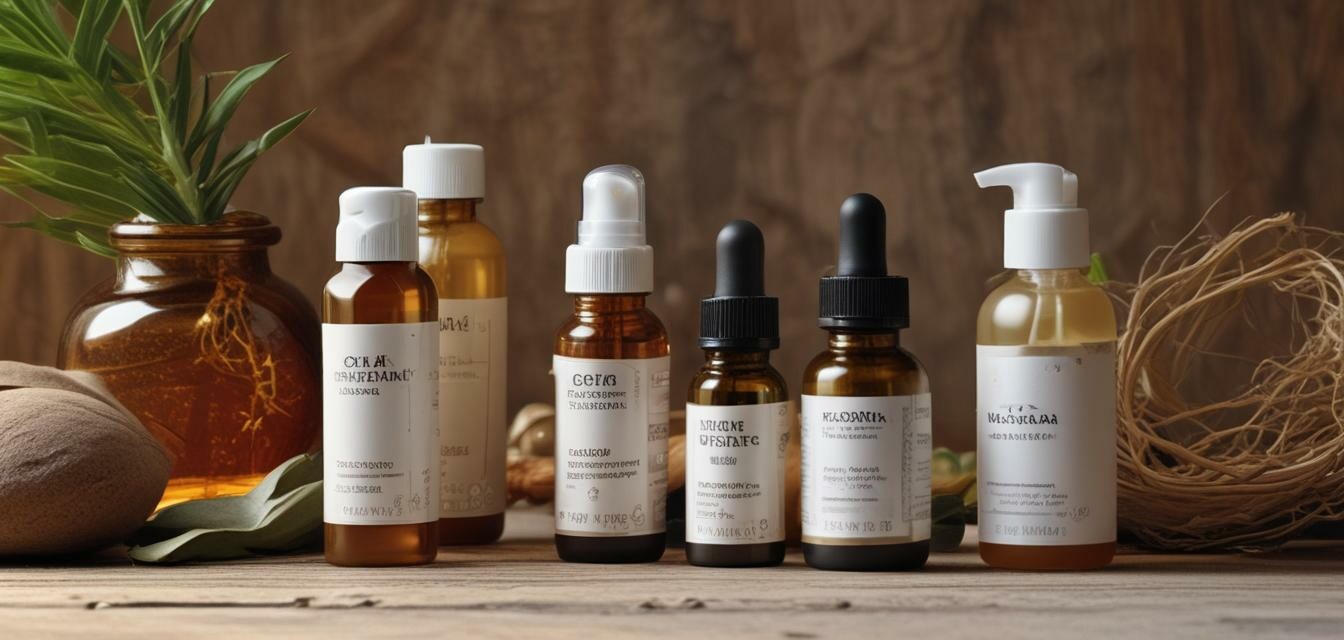
Anti-Aging Products Worth the Investment
Key Takeaways
- Understanding your skin type is crucial when choosing anti-aging products.
- Invest in quality ingredients over quantity for effective results.
- A well-rounded skincare routine combines various product types.
- Always check for organic certifications and cruelty-free labels.
- Read product reviews and comparisons to make informed choices.
With the multitude of anti-aging products available, it can be overwhelming to determine which ones are truly worth the investment. While some may offer quick fixes, the most effective products will present long-lasting benefits for your skin. In this guide, we will explore various categories of anti-aging products, their benefits, and factors to consider when making your investments. Let's dive in!
Understanding Your Skin Type
Before investing in any anti-aging products, it's essential to know your skin type. This will help you choose products that cater specifically to your skin’s needs. Here are the primary skin types:
- Oily Skin: Often shiny, prone to acne and enlarged pores.
- Dry Skin: Flaky, rough texture; may feel tight or itchy.
- Combination Skin: A mix of oily and dry zones, often with an oily T-zone.
- Sensitive Skin: Prone to redness or irritation; reacts more easily than other skin types.
- Normal Skin: Balanced; not too oily or dry; generally clear.
Types of Anti-Aging Products
Here’s a breakdown of popular anti-aging products that are worth your splurge.
| Product Type | Benefits | Key Ingredients |
|---|---|---|
| Anti-Aging Oils | Hydrates skin, boosts elasticity | Vitamin E, Rosehip oil |
| Organic Serums | Packs concentrated ingredients, reduces fine lines | Hyaluronic acid, peptides |
| Herbal Moisturizers | Locks in moisture, improves texture | Aloe vera, Jojoba oil |
| Exfoliating Scrubs | Removes dead skin cells, promotes cell turnover | Alpha hydroxy acids, Natural exfoliants |
| Natural Face Masks | Provides intensive hydration, brightens complexion | Clay, Honey, Avocado |
Key Considerations for Investing
When evaluating which anti-aging products to invest in, keep these factors in mind:
- Ingredient Quality: Look for high-quality, beneficial ingredients.
- Brand Reputation: Choose brands known for their reliability and product efficacy.
- Reviews and Feedback: Check product reviews to understand other customers’ experiences.
- Price vs. Performance: Consider if the performance justifies the price tag.
- Trial Sizes: Avoid committing to a full-size product without trying a smaller version first.
Finding the Right Products for You
With the right knowledge, finding anti-aging products that are worth the investment becomes simpler. You may explore our other guides, like anti-aging oils and organic serums, to see various options available.
Tips for Beginners
- Start with a simple routine and add products gradually.
- Always do a patch test to prevent allergic reactions.
- Stay consistent with your routine for the best results.
- Invest in sunscreen to protect your skin from further aging.
- Stay hydrated and maintain a balanced diet to support skin health.
Conclusion
Investing in anti-aging products doesn't have to be daunting. By understanding your skin type, being aware of quality ingredients, and reading reviews, you can curate a skincare routine that effectively targets your skin's specific needs. Whether you're interested in herbal moisturizers or natural cleansers, there's a wide array of options to explore. Embrace the journey, and remember that the best anti-aging solution is the one that makes you feel great in your skin!
Pros
- Effective long-term results
- Increased self-confidence
- A wide variety of products to suit different skin types
Cons
- Some products can be expensive
- Results may vary from person to person
- Potential for allergic reactions in sensitive skin
